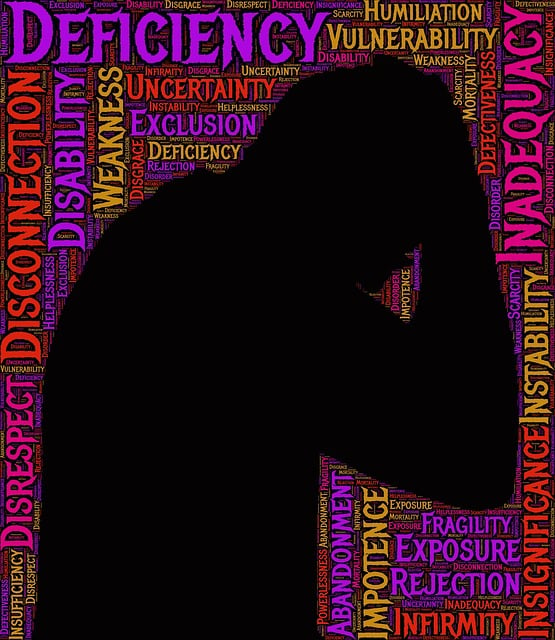Media portrayal significantly shapes societal views on mental health, especially postpartum depression (PPD). Positive, accurate, and compassionate media coverage is vital in destigmatizing PPD through emotional intelligence and empathy. Boulder Postpartum Depression Therapy distinguishes itself with a tailored multi-faceted approach combining individual therapy and support groups, aiming to reduce stigma and encourage open discussions via various platforms including their Mental Wellness Podcast Series. By fostering community and accessibility, Boulder ensures new mothers from diverse backgrounds can access support and connect with peers facing similar mental health challenges. Responsible media storytelling, collaborating with experts like Boulder Postpartum Depression Therapy, is crucial for accurate, compassionate mental health representation, inspiring hope and encouraging individuals to seek necessary support.
In today’s digital age, media representation of mental illness significantly impacts public understanding and awareness. This article explores strategies for accurate and compassionate portrayal, focusing on Boulder’s innovative approach to postpartum depression therapy as a model solution. We delve into the profound effects of media on mental health perception and present actionable steps towards improvement. By examining these initiatives, we aim to inspire more inclusive narratives that challenge stigmas and foster empathy, particularly in treatments like Boulder Postpartum Depression Therapy.
- Understanding the Impact of Media Portrayal on Mental Health Awareness
- Boulder's Approach to Postpartum Depression Therapy: A Innovative Solution
- Strategies for Accurate and Compassionate Mental Illness Representation in Media
Understanding the Impact of Media Portrayal on Mental Health Awareness

Media portrayal plays a pivotal role in shaping societal perceptions and understanding of mental health issues, particularly when it comes to conditions like postpartum depression (PPD). The way media depicts individuals with mental illnesses can significantly influence public opinion, accessibility to support systems, and even the willingness to seek professional help. Positive representations that promote emotional intelligence and empathy building strategies are essential tools in combating the pervasive mental illness stigma.
Accurate and compassionate media coverage has the potential to destigmatize PPD and other mental health challenges, encouraging open conversations and fostering an environment where individuals feel more comfortable discussing their struggles. By presenting diverse narratives that reflect real-life experiences, media can contribute to mental illness stigma reduction efforts, ultimately advocating for better access to treatment options like Boulder Postpartum Depression Therapy.
Boulder's Approach to Postpartum Depression Therapy: A Innovative Solution

Boulder’s innovative approach to postpartum depression therapy offers a promising solution for tackling this often-overlooked mental health challenge. The city has recognized that traditional treatments may not resonate with all mothers, and as such, they’ve developed a unique program. This involves a multi-faceted strategy, combining individual therapy sessions with support groups tailored specifically for new mothers. By creating a safe and understanding community, Boulder aims to reduce the stigma associated with mental illness and encourage open discussions about postpartum experiences.
The city’s efforts extend beyond therapy; they also produce a Mental Wellness Podcast Series to educate and engage the community. This initiative, alongside crisis intervention guidance and Mental Illness Stigma Reduction Efforts, creates a comprehensive support network. By utilizing various media platforms, Boulder ensures that mothers across different backgrounds can access resources and connect with others going through similar struggles, fostering a sense of belonging and empowerment.
Strategies for Accurate and Compassionate Mental Illness Representation in Media

Media plays a significant role in shaping societal perceptions, especially regarding mental health. To foster mental health awareness, media outlets must adopt strategies that ensure accurate and compassionate representation of mental illness. One crucial approach is to consult with experts, including therapists like those offering Boulder Postpartum Depression Therapy, to gain insights into the nuances of various conditions. This collaboration can help in creating more realistic and sensitive portrayals.
By integrating emotional regulation techniques and showcasing characters engaging in self-awareness exercises, media can contribute to a more profound understanding of mental health challenges. Such representations encourage viewers to approach these topics with empathy, reducing stigma and promoting support for those struggling with their mental well-being. Accurate depiction of treatment processes and recovery journeys can also inspire hope and motivate individuals to seek the help they need.
Mental illness representation in media plays a pivotal role in shaping public perception and understanding. By adopting innovative approaches, such as Boulder’s successful treatment of postpartum depression, we can challenge negative stereotypes and foster empathy. Implementing accurate and compassionate strategies for media portrayal is essential to enhancing mental health awareness and supporting those living with these conditions. Embracing these solutions paves the way for a more inclusive and supportive society.














